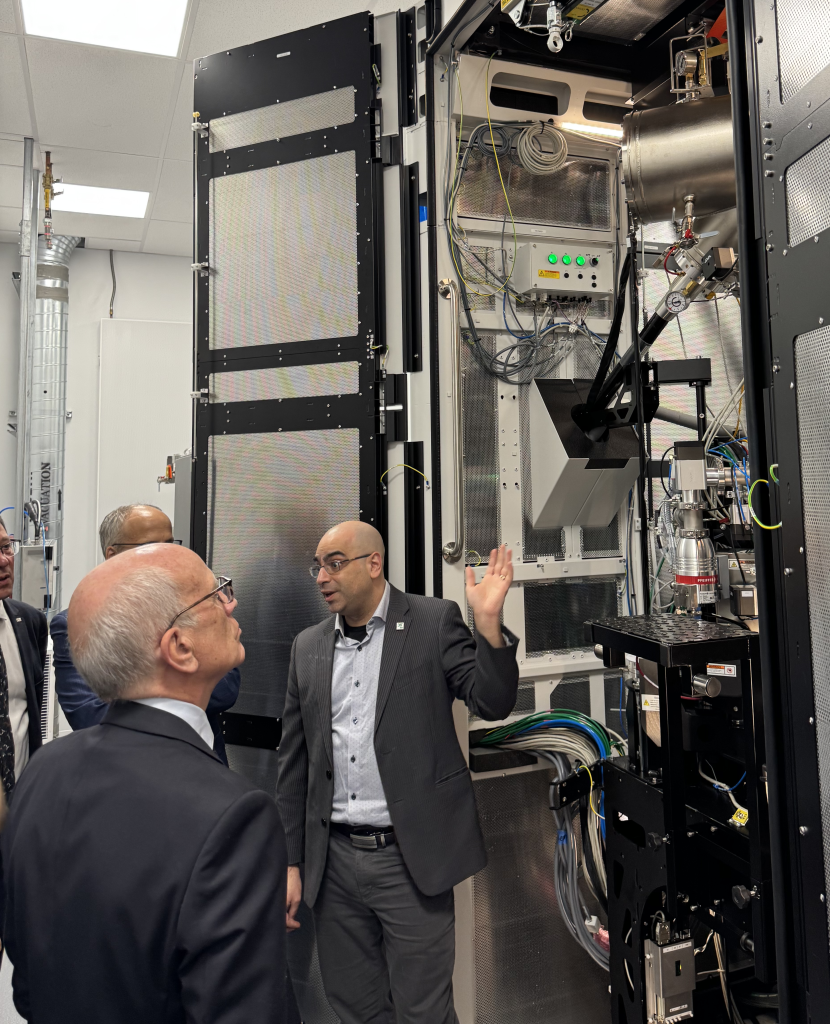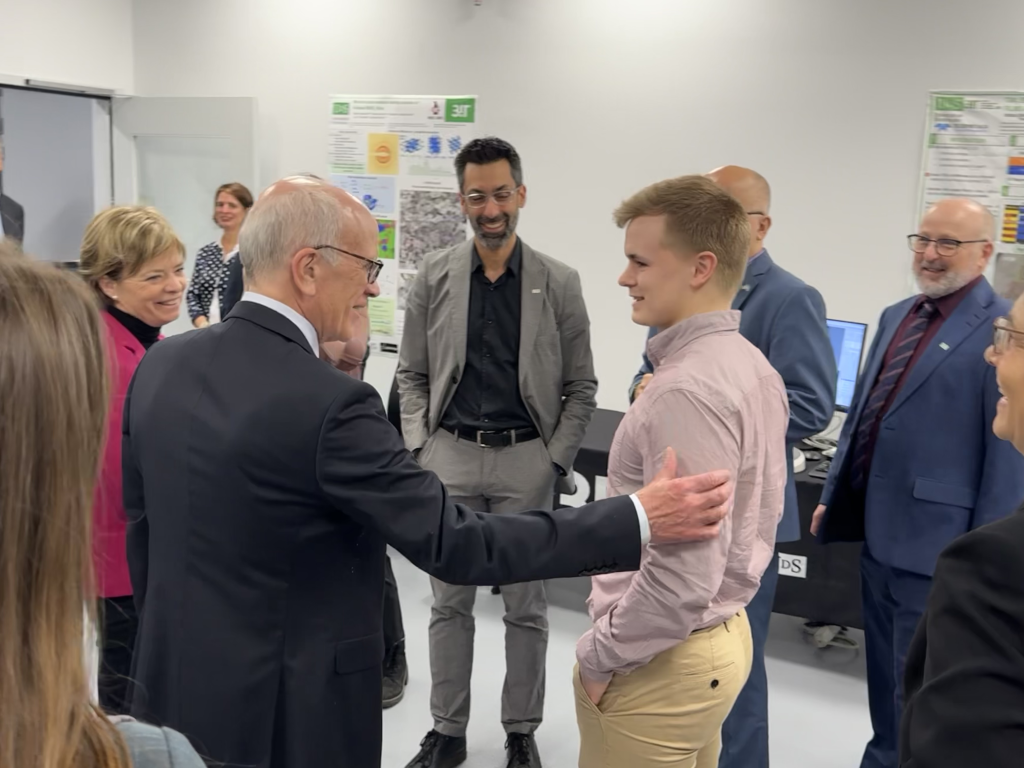SHERBROOKE, QC – U.S. Senator Peter Welch (D-Vt.) traveled to Sherbrooke, Québec, Canada this week for an event celebrating semiconductor innovation and collaboration between Quebec and the Northeastern United States. Senator Welch joined the ribbon cutting for an expansion of the Interdisciplinary Institute for Technological Innovation (3IT) at the University of Sherbrooke.
“It is inspiring to see a strong commitment to innovation, collaboration, and cooperation,” said Senator Welch. “I’m committed, as a Vermonter and as a United States Senator, to sustaining what so many before us have built—a level of trust that is essential to creating a future that includes good jobs and advances in science—in Vermont and in Canada.”
Senator Welch joined students, staff, and leadership of the University of Sherbrooke, Members of the Quebec National Assembly, the Vermont Agency of Commerce and Community Development, and representatives from the University of Vermont.
“The Université de Sherbrooke generates annual spinoffs of over $1.1 billion for Sherbrooke and the surrounding area, while 3IT plays a first-tier role in the technological development of the region and of Québec and Canada. This Institute is at the core of the digital and quantum Integrated Innovation Chain, which acts as a bridge between fundamental research and commercialization. In addition to contributing to research and training, these new facilities will enhance synergy with the Institut quantique, with the MiQro Innovation Collaborative Centre (C2MI) in Bromont, and with companies that work in our two innovation zones (DistriQ and Technum Québec),” said Pierre Cossette, Rector of the Université de Sherbrooke.
“This expansion marks an important milestone in 3IT’s development, as it has considerably expanded the Institute’s holdings of advanced micro-nanofabrication equipment to support industrial innovation. With these new facilities, 3IT has bolstered its world-class research activities, which will attract the best talent to develop technological solutions that meet our society’s needs,” said Paul Charette, Director of 3IT.
“In these uncertain times, local innovation must be stimulated. We must also diversify and develop new markets. This is why it is essential for us to support our university network and its researchers. They are one of the best tools we have to rise above the rest in these fields. Thank you and congratulations to everyone who worked on this amazing project,” said Pascale Déry, Minister of Higher Education.
“The current geopolitical context impels us to invest in expansions like the one at 3IT to strengthen our capacity for innovation and competitiveness both here and internationally. Here in the Eastern Townships is where the next breakthroughs in quantum science, photonics, and biomedical technologies are coming together,” said Christopher Skeete, Minister for the Economy, Minister Responsible for the Fight Against Racism, and Minister Responsible for the Laval Region.
“At 3IT, ideas take shape and create vectors for growth for all of Québec. This expansion will also boost our ability to innovate here in Sherbrooke and turn today’s discoveries into tomorrow’s concrete solutions. Here, we are inventing the technologies that will reshape how we experience, care for, and connect with the world,” said Geneviève Hébert, MNA for Saint-François and Assistant Government Whip.
View photos from the event below:





In January, Vermont signed a Memorandum of Understanding (MOU) with organizations in Vermont and Québec, including the University of Vermont and the University of Sherbrooke, which aims to establish a hub for innovation and advanced manufacturing, called the Northeast Semiconductor Manufacturing Corridor. The MOU is focused on several key areas of understanding, including the shared goals of developing resilient supply chains for uninterrupted access to critical components, and mitigating trade barriers by enacting mutually beneficial policies across the border.
Senator Welch has been a longtime supporter of semiconductor and chips innovation. The Senator helped pass the CHIPS and Science Act as a member of the U.S. House of Representatives. The CHIPS and Science Act includes landmark investments to support domestic semiconductor and chip manufacturing research and development; bolster the STEM workforce; strengthen our 21st Century security, tech defense, and wireless supply chains; and advance innovation in the advanced manufacturing industry.
###
